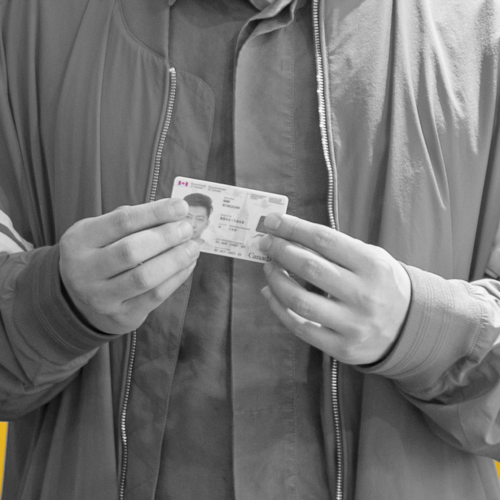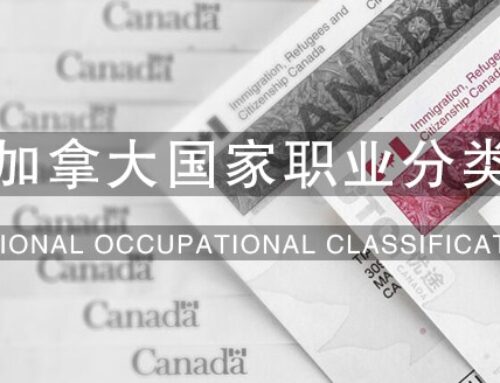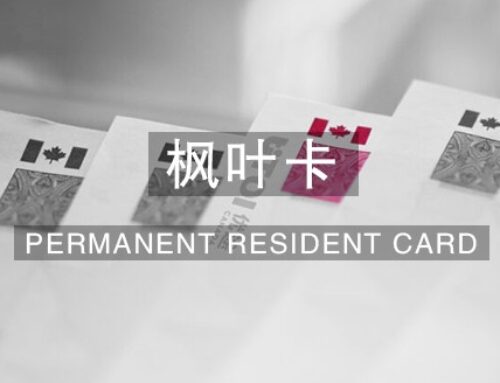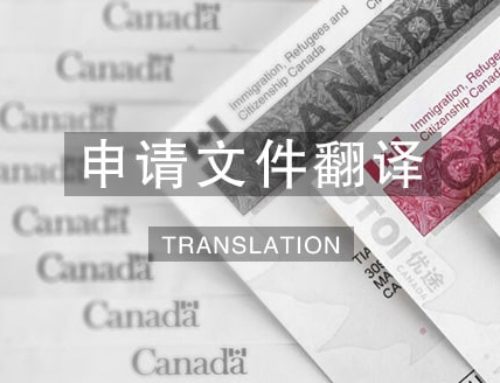加拿大永久居民的居住义务 Residency Obligations
只有在履行居住义务的情况下,加拿大永久居民才能保持其永居身份。居住义务是指永久居民在特定时间范围内,在加拿大境内实际居住一定的时间。
除某些特定情况外,如果永久居民在成为加拿大永久居民超过五年,则在过去五年内必须满足在加拿大境内实际居住时间超过730天。如果成为加拿大永久居民不超过五年,则必须证明在其在成为加拿大永久居民后的五年内至少有可能在加拿大境内实际居住超过730天。
In order to maintain permanent resident status in Canada, a person must meet a residency obligation. The residency obligation refers to a person’s physical presence inside of Canada for a set amount of time.
Canada’s residency obligation for permanent residents requires a person to be physically present inside of Canada for at least 730 days within a five-year period or to fall under one of several exceptions.
文章内容 Table of Contents
最小居住义务 Definition of Residency Obligations
加拿大规定永久居民需要满足的最小居住义务,是在五年内必须在加拿大境内居住至少730天,除非:
- 情况一:在加拿大境外与加拿大公民共同居住
永久居民在加拿大境外与加拿大公民共同居住,可被视为在加拿大境内居住。该加拿大公民可以是其配偶、普通法伴侣或父母(此情况下永久居民的年龄需小于19周岁)。 - 情况二:在加拿大境外工作
永久居民如果符合以下条件,可以将在加拿大境外受雇工作时间算作在加拿大境内居住:受雇于一家加拿大企业,或与加拿大企业签署合作协议,或永久居民为加拿大联邦、省级或某领地政府机构工作,并且工作合同或聘用内容中有一项必须说明永久居民就职于:一个在加拿大境外的工作岗位、一个位于加拿大境外的加拿大企业子公司;或一个加拿大企业或加拿大境外政府机构的客户。对加拿大企业的定义为“一个依据加拿大联邦或某省法律建立的公司;此公司必须在加拿大境内持续运营,同时产生收入并达到预期收益,且该公司的大多数董事或股东是加拿大公民或永久居民”。 - 情况三:在加拿大境外与加拿大永久居民共同居住
如下情况可将在加拿大境外与永久居民共同居住的时间视作在加拿大境内居住:与永久居民同住的必须是其配偶、普通法伴侣或家长(此种情况下永久居民必须未年满 19 周岁);或与永久居民同住的加拿大永久居民必须受聘于一个加拿大企业或加拿大联邦、省级或领地的境外政府机构。
通常,永久居民只有在申请更新枫叶卡、申请永久居民旅行证件,或申请入籍成为加拿大公民时,才会被审核其是否履行居住义务。如果永久居民获批永久居留权超过五年,则其最小居住义务将按递交上述申请之日前的五年计算。如果成为加拿大永久居民不超过五年,则必须证明在其在成为加拿大永久居民后的五年内至少有可能在加拿大境内实际居住超过730天
此外,每次入境时都有可能被检查居住义务,但执行并不严格。尤其是持有枫叶卡入境,通常不会再被要求提供居住义务证明。目前,加拿大的主要入境口岸多伦多和温哥华,都设立了自主入境通道,永久居民入境非常方便。检查居住义务,只能从申请人递交枫叶卡申请或入境当天向前追溯 5 年,而不能是更长时间。例如:枫叶卡申请人离开加拿大 10 年后侥幸入境。其后在加拿大居住满 730 天后递交枫叶卡申请,签证官不得以申请人 2 年前有境外 10 年生活为理由拒发枫叶卡。
Canada’s residency obligation for permanent residents requires a person to be physically present inside of Canada for at least 730 days within a five-year period, or to meet one of the following situations:
- The person is outside of Canada accompanying a Canadian citizen who is their spouse or common-law partner, or the person is a child accompanying their parent;
- The person is outside of Canada employed on a full-time basis by a Canadian business or in the public service of Canada or of a Canadian province;
- The person is an accompanying spouse, common-law partner, or child of a permanent resident who is outside Canada and is employed on a full-time basis by a Canadian business or in the public service of Canada or of a Canadian province.
Usually, whether a permanent resident has met their residency obligations is assessed when they are applying for a permanent resident card renewal, permanent resident travel document (PRTD), or Canadian citizenship. Please note that if a person has Canadian permanent residence for more than five years, the residency obligation will be calculated based on the five years prior to the date an application was received by the visa office.
If a person has been a Canadian permanent resident for less than five years, they may be eligible to apply for a permanent resident card renewal or PRTD provided they can demonstrate that they will be able to meet the 730 days physical presence day within the five year period.
永久居民的入境权利 Right of Entry
加拿大永久居民与加拿大公民一样,有绝对的入境权利。只要永久居民出现在加拿大边境口岸,加拿大边境管理部门不得以任何理由拒绝其入境,或遣返。边境官员也无权直接取消永久居民身份。如果在入境时官员认为永久居民未满足居住义务,可以在允许永久居民入境同时签发递解令,永久居民可以针对递解令进行上诉。
永居身份的裁撤 Determination of Status
加拿大永久居民在枫叶卡过期后,其永久居民身份不会自动失效。永居身份只能通过官方程序进行注销。由于以下原因,永久居民的永居身份可能失效:
- 移民官在续卡申请期间或永久居民旅行证上诉期间,由于申请人不满足条件而确定申请人不再具有永居身份;
- 永久居民自愿放弃永久居留权;
- 针对永久居民发出驱逐令并生效;或,
- 申请人入籍成为加拿大公民。
即使永久居民未能履行其居住义务,在官方对其身份做出正式撤销决定前,其永久居民身份依然有效。如在明知未能履行居住义务的情况下计划入境加拿大,主动放弃永久居民身份后另行申请签证,可能会节省更多时间。
A permanent resident of Canada can only lose their status through a formal determination of status. Any time a permanent resident applies for a PR card renewal or a permanent resident travel document (PRTD), a visa officer will conduct an official determination of status to see if the person has met their residency obligations and has no other barriers from renewal.
Until this formal determination has been completed a person will technically remain a permanent resident of Canada. If a permanent resident is aware that they have not met their residency obligation, they may formally renounce their permanent resident status.
居住义务与省提名 Residency Obligations and Provincial Nominations
根据《加拿大权利与自由大宪章》第六条相关规定,永久居民自获批永久居留权之日起,即与加拿大公民拥有相同的自由迁徙权。可以自由选择在加拿大任何省份和地区生活及就业。值得注意的是,虽然加拿大公民和永久居民享有自由迁徙权,但加拿大法律还规定,通过省提名获取永居身份的永久居民,必须拥有在其申请省份定居的主观意愿。
如果被证实递交省提名申请时,申请人陈述的在该省的定居意愿并不属实,有可能导致被判定为虚假陈述。在加拿大,对政府提供虚假陈述属于刑事犯罪,可能导致永居身份被撤销并在五年内无法入境加拿大。通过省提名获批永久居留权的新移民在登陆时需表明其在该省的定居意愿。
Canadian citizens and permanent residents hold the right to live and work in any province in Canada, as found in Section 6 of the Canadian Charter of Rights and Freedoms. These rights begin when Canadian permanent residence is activated. It is important to note that while Canadian citizens and permanent residents have constitutionally protected mobility rights, Canadian law determines that immigrants belonging to the provincial nomination class must intend to reside in the province that has nominated them.
If the intention to reside in the selecting province is found never to have been sincere, applicants risk being found guilty of misrepresentation which can result in loss of status and inadmissibility to Canada for five years. Misrepresentation is a criminal offence in Canada, and can have devastating affects on your immigration application and status in Canada. Applicants interested in selection by a Canadian province must show intention to reside in the province upon landing.







